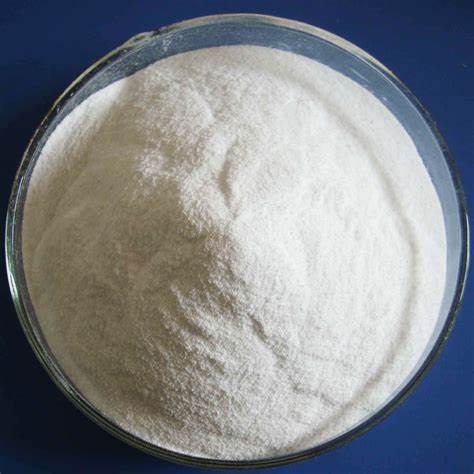Fosfat compounds are discovered in many foods, supplements, and commercial applications– and one of the most versatile is dipotassium phosphate . Together with other versions like disodium fosfat and other phosphate salts, these substances act as stabilizers, emulsifiers, barriers, and nutrient resources. In the food sector, they are essential for structure, stability, and nutrition. This article will explore the scientific research behind these additives, why they are essential, and what you need to understand about their uses and safety. If you’ve ever wondered how certain foods preserve their smooth structure or why non-dairy creamers do not curdle, this deserves reading.
1. What Is Phosphate and Why Is It So Essential?
Phosphate is a chemical compound having phosphorus and oxygen, commonly integrated with other minerals like potassium, sodium, or calcium. In nature, it’s derived from batuan fosfat and can be transformed right into different phosphate salts for commercial or dietary use.
In the body, phosphate functions as a crucial mineral , sustaining bone strength, power production, and mobile signaling. In foods, phosphate is used as a multi-purpose preservative to support appearance, control acidity , and enhance service life. This utilize in food normally adheres to a great production method , making certain that phosphate levels are safe and reliable.
2. Comprehending Dipotassium Phosphate (DKP).
Dipotassium phosphate (often shortened as DKP ) is an extremely water-soluble not natural water-soluble salt made by the neutralization of phosphoric acid with potassium hydroxide . This procedure creates a secure substance that’s both a nutrient source– the potassium existing and a source of phosphorus.
Dipotassium phosphate is normally acknowledged as safe ( taken into consideration GRAS ) by the Fda when made use of according to standards. In industry, dipotassium phosphate is used in coffee creamers, processed cheeses, and dry powder drinks as a stabilizer dan penghalang . It aids protect against problems like syneresis and coagulation in milk and non-dairy items.
3. Exactly How Does Disodium Phosphate Differ from Dipotassium Phosphate?
Disodium fosfat is another usual artificial additive, but rather than potassium, it contains salt . While both feature as stabilizers and emulsifiers, the nutritional payment differs: disodium phosphate adds sodium, whereas dipotassium phosphate might include yang added benefit of potassium for those requiring electrolyte support.
In regards to manufacturing, both are developed with the neutralization of phosphoric acid , yet with various alkaline agents– salt for disodium phosphate and potassium for DKP. These little differences can matter for individuals keeping an eye on salt atau potassium phosphate consumption.
4. Phosphate Is a Chemical with Many Duties– Yet Just how?
From a chemistry standpoint, phosphate is used in food and the sector for its unique buffering properties. A barrier withstands adjustments in acidity , maintaining food formulations secure under varying problems. This is important for makanan olahan that should remain shelf-stable and enticing over time.
Phosphate substances additionally function as chelating agents , binding with minerals like kalsium to prevent calcium down payments in equipment or within food matrices. In dairy applications, phosphates communicate with the milk’s healthy proteins and help milk’s healthy proteins to promote emulsification dari fat droplets .
5. Use Dipotassium Phosphate in the Food Industry.
The use of dipotassium phosphate in foods is broad. Dkp is a multi-purpose food additive utilized in processed cheese products , non-dairy creamers to stop coagulation , based coffee creamers , Dan completely dry powder drinks . Without DKP ( without DKP), these items could experience curdling or texture breakdown.
DKP features as a texturizer , guaranteeing that makanan olahan remain smooth and uniform. It’s likewise a nutrient base during yeast production and supports yeast manufacturing and various other fermentation processes by providing essential minerals.
6. Dipotassium Phosphate as a Buffering Agent and Emulsifier.
Sebagai sebuah penghalang , DKP aids in maintaining the excellent pH for security. As an emulsifier , it keeps fat droplets evenly dispersed, preventing separation. In creamers , it functions to maintain items smooth, even when blended with warm acidic coffee.
Dalam processed cheese products , DKP prevents syneresis and curdling by binding to milk proteins to promote emulsification , which keeps a luscious mouthfeel. This buffering also contributes to flavor stability in time.
7. Nutritional Aspects: Source of Potassium and Phosphorus.
Dipotassium phosphate is generally used not just as an additive but additionally as a mineral supplement, dan drug, and a nutrient base . It’s a source of potassium for electrolyte equilibrium and provides phosphorus for energy metabolism.
Sebagai sebuah mineral supplement for drugs , DKP ensures that specific medicines or nourishment treatments have a reputable supply of potassium dan fosfor . The nutrient duty reaches starter societies in fermentation, where DKP functions as a nutrient base throughout yeast manufacturing .
8. Safety And Security Profile and Food Regulations.
Dipotassium phosphate is generally identified as risk-free when following good production practice . It’s generally acknowledged as secure ( GRAS ) under the fda guidelines.
Still, food safety firms suggest keeping an eye on levels in processed foods , particularly for individuals with pre-existing wellness conditions like kidney disease . Excess intake of fosfor can burden the kidneys, specifically if phosphate salts are taken in from multiple dietary sources.
9. Industrial Utilizes Beyond Food.
Past food, DKP is used as a plant food due to its nutrient web content and very water-soluble nature. In pharmaceuticals, it’s used as a mineral supplement or as part of pharmaceuticals and a nutrient base untuk production and other fermentation procedures .
DKP additionally functions as a stabilizer in chemical production, and its duty as an electrolyte makes it useful in specialized applications.
10. Possible Threats for Individuals with Pre-Existing Wellness Conditions.
For healthy and balanced people, DKP is normally risk-free. However, those with kidney issues or kidney disease must be cautious. Elevated fosfor dan potassium levels can create imbalances that stress kidney feature.
Also, people with pre-existing wellness problems that influence electrolyte balance must speak with a doctor before using products with high phosphate web content. This is specifically relevant when DKP is taken in along with other potassium chloride atau phosphate salts .
11. Final Thoughts on Phosphate Substances.
From makanan olahan untuk obat-obatan , phosphate substances like dipotassium phosphate dan disodium fosfat play important roles as stabilizers, buffers, and nutrient resources. They’re valued for keeping products shelf-stable and appealing while delivering the added benefit of potassium or other minerals.
Nevertheless, like any kind of additive, their usage should align with excellent manufacturing method , and people with health conditions should check intake carefully.
Key Details to Remember .
- Dipotassium phosphate is an extremely water-soluble inorganic salt used in food, pharma, and agriculture.
- Features as a perwakilan penyangga , emulsifier , texturizer , Dan stabilizer di makanan olahan .
- Maintains appearance and protects against syneresis and curdling in dairy products and non-dairy applications.
- Acts as a source of potassium dan fosfor — vital nutrients in the diet plan.
- Dipotassium phosphate is generally acknowledged as safe by the FDA when used correctly.
- Important for non-dairy creamers to avoid coagulation dan processed cheese products .
- Made use of in yeast manufacturing and other fermentation procedures as a nutrient base .
- Individuals with a kidney condition atau pre-existing wellness problems must check their phosphate intake.
- Plays a role in fertilizers , obat-obatan , and various other industrial procedures.

